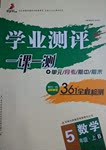题目内容
Do you know how to study better and make your study more effective(有效)? We all know that Chinese students usually study very hard for a long 35. This is very good, but it doesn't 36 a lot. An effective student must have enough sleep, enough food, enough rest and exercise. You need to go out for a walk or visit some friends or some nice places. It's good for your study.
When you return 37 your studies, your mind will be refreshed(清醒的) and you'll learn more 38 study better. Psychologists(心理学家)39 that learning takes place in this way. Here take English learning 40 an example. In the first few months you can make progress and you feel happy. Then your language study seems 41 on the same level. So you will think you're learning 42 and you may give up. This can last for days or even weeks, yet you needn't give up. At some point your language study will take another big 43 again. You'll see that you really have been learning all along. If you get enough sleep, food, rest and exercise, studying English can be very effective and interesting. Don't 44 along the way. Learn slowly and you're sure to get a good result.
| 【小题1】 |
|
| 【小题2】 |
|
| 【小题3】 |
|
| 【小题4】 |
|
| 【小题5】 |
|
| 【小题6】 |
|
| 【小题7】 |
|
| 【小题8】 |
|
| 【小题9】 |
|
| 【小题10】 |
|
【小题1】B
【小题2】A
【小题3】D
【小题4】B
【小题5】A
【小题6】C
【小题7】D
【小题8】C
【小题9】B
【小题10】C
解析【小题1】此题考查名词,根据语境可知中国学生学习的时间很长故用time。
【小题2】此题考查动词,根据上文可知,这虽然很好,但帮助不是很大,故用help。
【小题3】此题考查固定短语return to表示回来。
【小题4】此题考查连词,表示并列,故用and。
【小题5】此题考查动词,表示研究证明故用find。
【小题6】此题考查固定短语take…as an example: 以……为例
【小题7】此题考查固定短语seem to do sth表示似乎怎样。
【小题8】此题考查不定代词,根据语境可知似乎没又学到任何东西。故选nothing
【小题9】此题考查名词,jump表示飞跃
【小题10】此题考查固定短语give up表示放弃。

 活力课时同步练习册系列答案
活力课时同步练习册系列答案 学业测评一课一测系列答案
学业测评一课一测系列答案Long, long ago there was a very foolish thief. Do you know what he did one day? When he wanted to steal (偷) the bell on his neighbor’s door, he walked up to the door, took hold of (抓住) the bell and pulled hard. The bell made a very loud noise. The thief was afraid and went home.
Then he sat down to think, “I must do something about the noise,” he said. He thought and thought. At last he had an idea. “Ah, I’ll put some cotton in my ears. Then I won’t be able to hear the noise.” The next day he went to the door of his neighbor, and took hold of the bell. This time he pulled even harder. The bell rang loudly, but the thief did not hear anything. With another hard pull he got the bell out. Just then the neighbor came running out. “Steal my bell? I’ll teach you a lesson (教训),”the angry man shouted. And he hit the thief on the nose.
The foolish thief did not know how the neighbor found out he was stealing the bell. “Why did he come out just then?” he wondered (感到疑惑).
【小题1】The thief was trying to get .
| A.his neighbor | B.his neighbor’s doorbell |
| C.some cotton | D.a door with a bell on it |
| A.safe | B.difficult | C.dangerous | D.easy |
| A.he knew his doorbell was being stolen |
| B.he thought someone was eager (渴望的) to visit him |
| C.He realized (意识到) something strange happened |
| D.Both B and C |
| A.give him lessons | B.punish (惩罚) him for stealing |
| C.help him with the bell | D.be his teacher |
| A.The thief understood why he was hit on the nose. |
| B.The thief knew why the neighbor came out. |
| C.The thief thought the neighbor could not hear the bell. |
| D.The thief didn’t want to know why the neighbor ran out just at the time he stole the doorbell. |